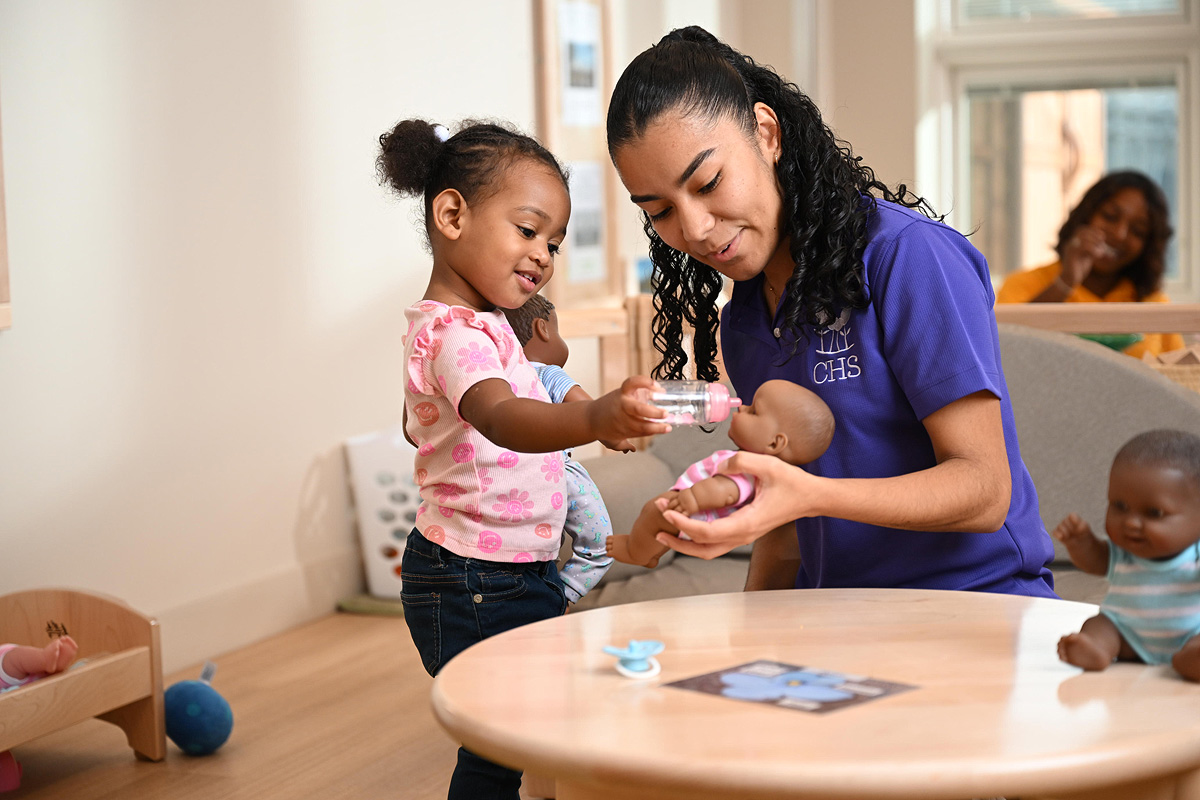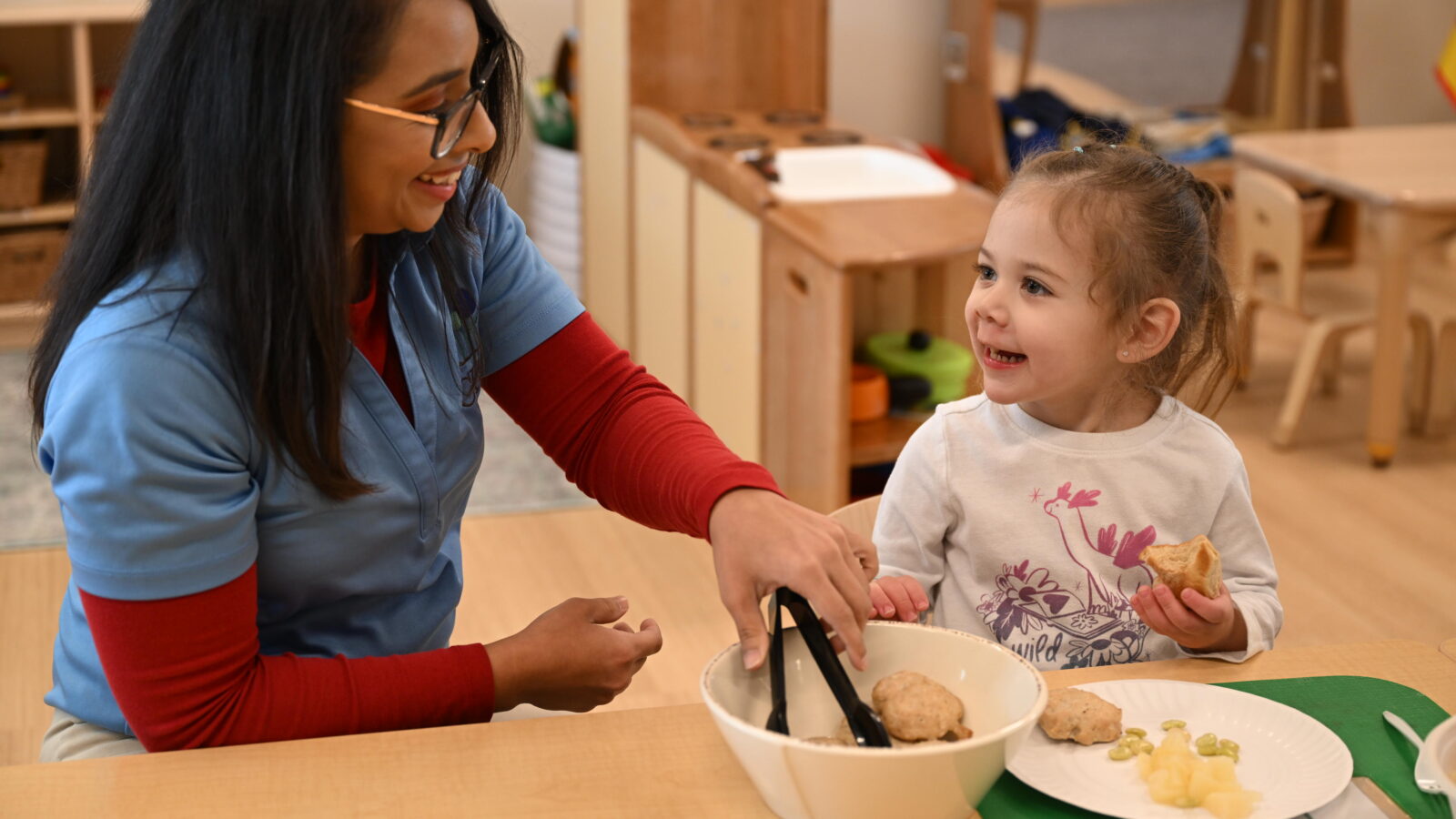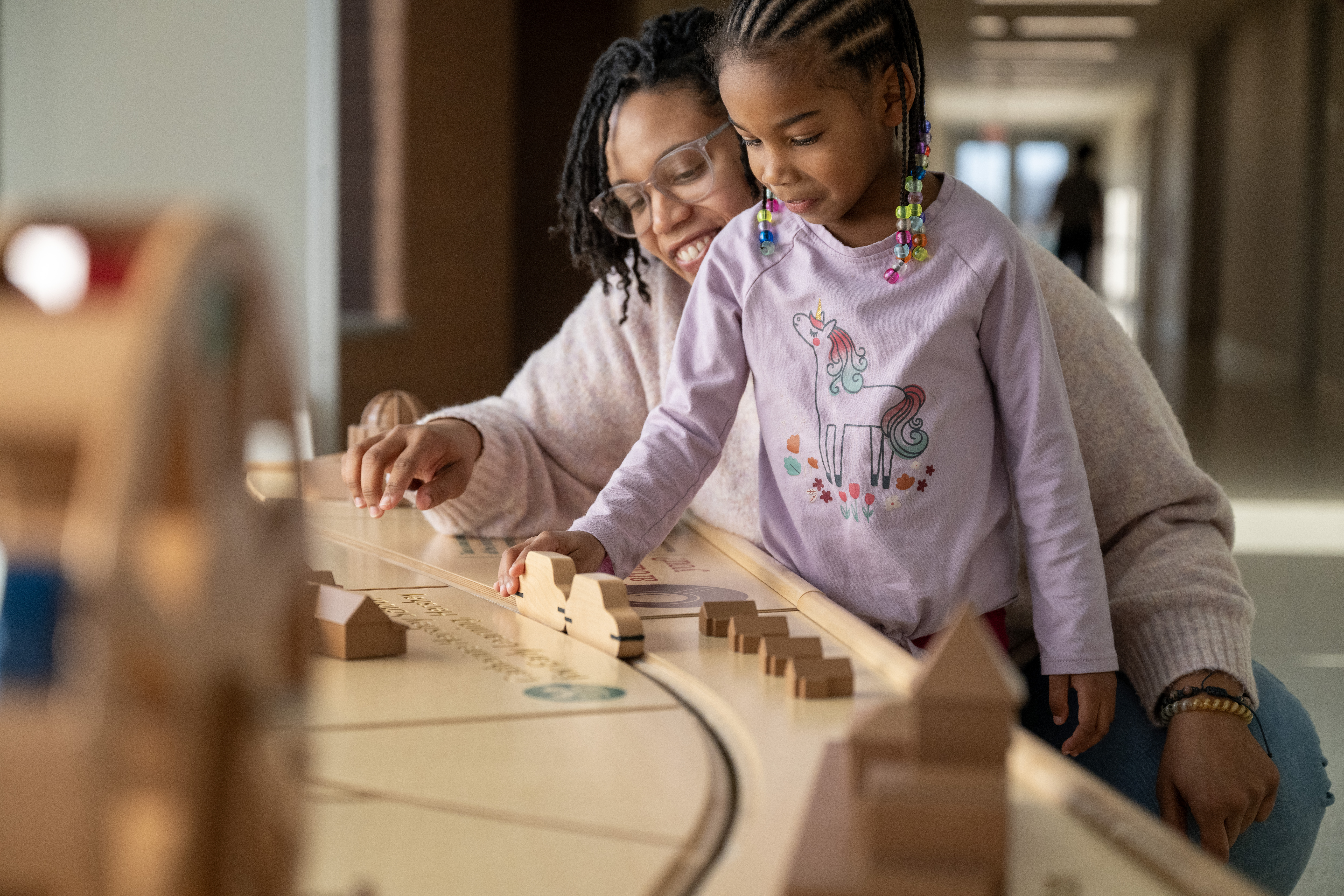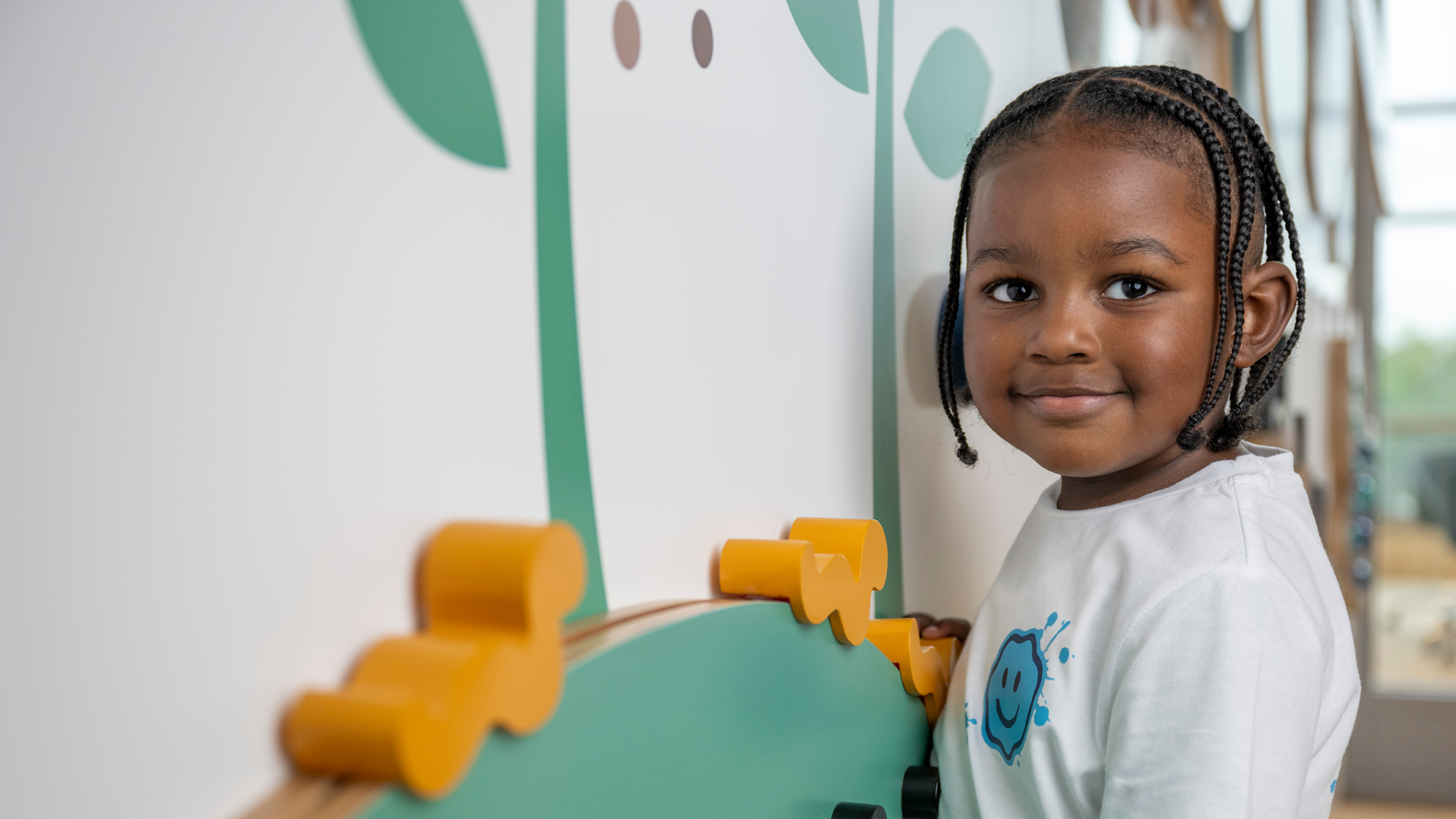Ways to Support Your Child’s Learning at Home: Week of the Young Child
Celebrate NAEYC’s Week of the Young Child by turning everyday moments into meaningful learning experiences through Music Monday, Tasty Tuesday, and Family Friday.
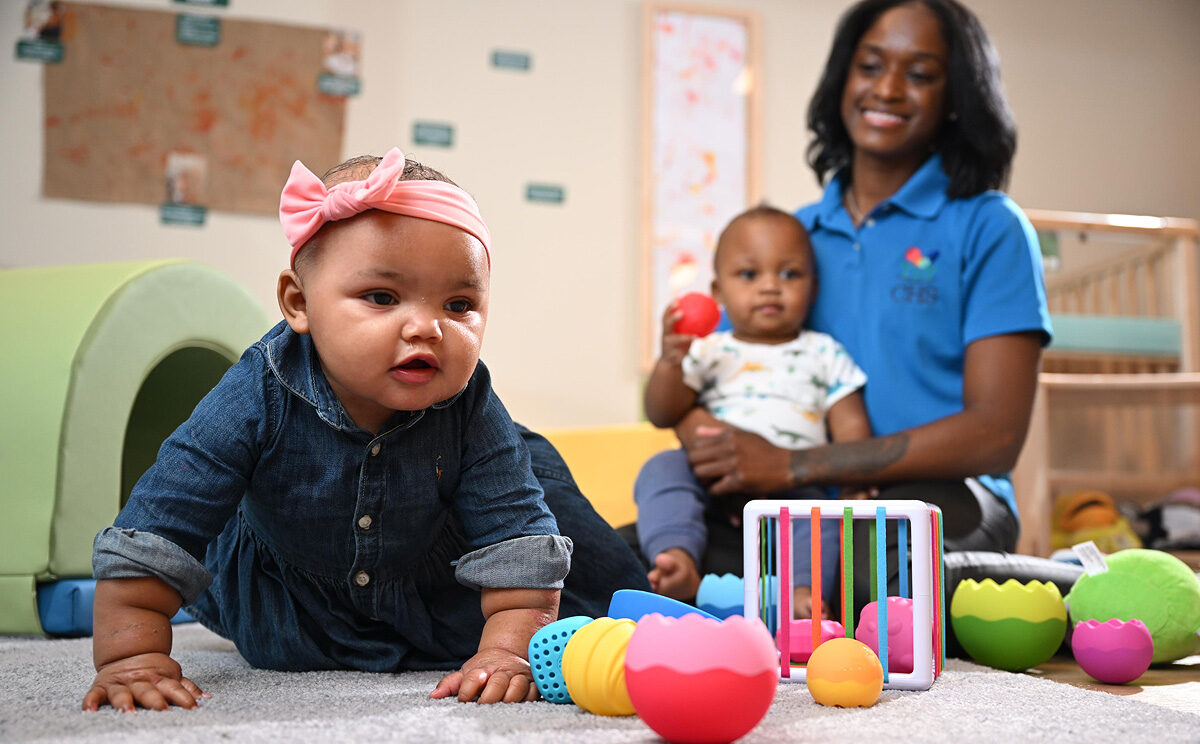
Play, music, cooking, and family time are all ways children learn, and things you’re already doing at home! That’s why we’re celebrating NAEYC’s Week of the Young Child (WOYC) by highlighting three simple, fun ways to help you take every day activities and incorporate them with even more intention to help your child grow: Music Monday, Tasty Tuesday, and Family Friday. These activities don’t require special materials or extra money, just time together as a family!
Why Early Learning Matters
The early years are important for a child’s brain development, setting the stage for school and life. When children have hands-on learning experiences, they build skills in language, math, social interaction, and problem-solving. As your child’s first and most important teacher, you have an opportunity to support their early learning at home, reinforcing what your child is learning in an early childhood education environment.
The Week of the Young Child is an annual celebration sponsored by the National Association for the Education of Young Children (NAEYC). The purpose is to focus public attention on the needs of young children and their families and to recognize the early childhood programs and services that meet those needs.
Music Monday
Music is a powerful learning tool that helps with memory, movement, and even math skills. Best of all, you don’t need fancy instruments or music lessons—just your voice, some rhythm, and a little creativity!
Try These at Home:
- Sing Together: Nursery rhymes, favorite songs, or even making up silly tunes can help with language development.
- Clap the Beat: Tap, clap, or stomp along to music to help with rhythm and coordination.
- Homemade Instruments: Give your child a wooden spoon and a pot for a drum or shake dried beans in a plastic container to make a shaker.
- Dance Party: Put on a song and dance together! Moving to music builds motor skills and confidence.
Tasty Tuesday
Cooking isn’t just about food—it’s also a fun way to explore math, science, and healthy eating. You don’t need complicated recipes or expensive ingredients to enjoy cooking with your child.
Try These at Home:
- Taste the Rainbow: Let your child help pick colorful fruits and veggies to try. Talk about the different colors, textures, and flavors.
- Simple Snacks: Let your child help with easy recipes like yogurt parfaits, peanut butter sandwiches, or veggie wraps. Measuring ingredients is a great way to practice math.
- Mini Garden: If you have space, plant a small pot of herbs or veggies together. Watching plants grow teaches patience and responsibility.
Family Friday
Again, you are your child’s first and most important teacher! Spending quality time together strengthens your bond and helps them feel safe and supported. Family time can be simple, free, and fun while also helping your child learn.
Try These at Home:
- Family Storytime: Read a book together or tell stories from your own childhood.
- Get Creative: Make art together—handprint murals, coloring, or a family collage.
- Play Games: Board games, card games, or simple guessing games build problem-solving skills.
- Outdoor Adventures: Take a walk, ride bikes, or play outside together. Fresh air and movement are great for the body and brain!
Make Learning a Part of Everyday Life
Supporting your child’s learning doesn’t have to be expensive or time-consuming. Small moments—singing a song, making a snack together, sharing a story—can build lifelong skills. By incorporating Music Monday, Tasty Tuesday, and Family Friday, you’re giving your child meaningful learning experiences at home.
Let’s celebrate Week of the Young Child together by making learning fun, easy, and part of everyday life! Here are even more resources and activities for the Week of the Young Child.

